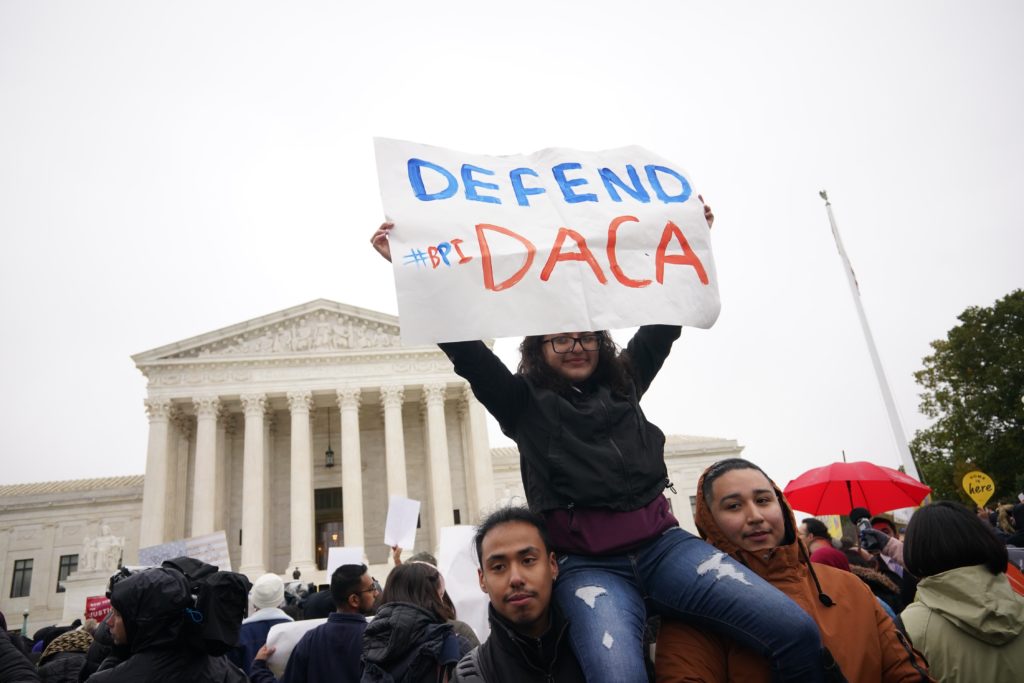
Supreme Court hearings on the Deferred Action for Childhood Arrivals Act, also known as DACA, have spurred protests and backlash across the country.
DACA has shielded roughly 700,000 undocumented immigrants who were brought to the United States as children. Discussion about abolishing this law has immigration advocates in distress.
DACA recipient and BYU student Mario Alcauter came to the U.S. with his parents when he was six years old. He said that it’s nice to know he is able to live and work here legally because of DACA but that the program doesn’t provide him with a clear path to citizenship, which makes him feel singled out in some aspects. He is not in favor of repealing the program.
“The decision to end the DACA program is based on self-interest reasons on behalf of the Trump administration,” Alcauter said.
He said he believes that this is more of a way for President Donald Trump to keep his campaign promises rather than do what is in the best interest of the people. Alcatuer explained that getting these privileges evoked from DACA recipients wouldn’t be fair, especially if the U.S. government were to send DACA recipients back to their land of origin.
“Coming (to the U.S.) has made it our home,” he said.
BYU graduate Chase Fowers witnessed protests at the Supreme Court last week. Fowers said there was a line around the entire court and that people had been camping out with winter gear. Fowers has a heightened interest in government policies and has closely followed what has happened under the Trump administration.
“It’s beyond debate that the immigration process needs to be reformed. There’s no reason to send these people back, but we also shouldn’t encourage people to continue coming by endorsing what they’ve done,” Fowers said.
The Trump administration first attempted to end the DACA program in 2017 out of concern of the criminal status of some DACA recipients, but some states have spoken out that ending the DACA program would severely harm the economy and leave many jobs vacant.
BYU law professor Carl Hernandez said that the current administration views DACA’s nonenforcement policy as eroding the rule of law and potentially incentivizing further migration into the U.S.
Although DACA’s possible termination has the potential to harm some states’ economic status and has DACA recipients concerned for their future, Hernandez understands the legality of the decision.
“The past and current administrations base the legality of DACA on the same legal principle, that the executive branch of government can choose how to enforce immigration laws in the United States,” Hernandez said.
It is unclear when the Supreme Court will come to a final decision. Until the verdict is announced, DACA recipients have government permission to continue living and working in the U.S.




